
Ancient Rome, a civilization renowned for its remarkable achievements in governance, architecture, and law, has left an indelible mark on the world, particularly in the realm of language. The Latin language, once spoken throughout the Roman Empire, became the cornerstone of Western linguistics and continues to influence languages centuries after the fall of Rome. This article explores the profound impact of Ancient Rome on modern languages, revealing how linguistic elements from this ancient civilization have withstood the test of time.
The Evolution of Latin: From Ancient Rome to Modern Times
Latin initially emerged as the language spoken by the inhabitants of the small town of Rome. As Rome expanded its empire, Latin spread across Europe, North Africa, and parts of Asia. The language underwent significant transformation over time, evolving into what is known today as Classical Latin during the Roman Republic and Empire periods.
Classical Latin eventually influenced the Romance languages—Spanish, French, Portuguese, Italian, and Romanian—collectively known as the Latin family. These languages share numerous grammatical structures, vocabulary, and syntax rooted in their Latin origins. The profound ties between Latin and these modern languages demonstrate the far-reaching legacy of Rome’s linguistic influence.
Latin’s Influence on Vocabulary and Lexical Borrowing
Latin’s contribution to modern vocabulary is substantial, particularly in the English language. An estimated 60% of English words derive from Latin, a testament to the extensive lexical borrowing that occurred during and after the Roman era. English has incorporated Latin terms extensively in scientific, medical, and legal terminology, with words like ‘et cetera,’ ‘status quo,’ and ‘versus’ retaining their original Latin forms.
Beyond direct borrowings, Latin roots have provided the basis for coining new words in multiple fields. The use of Latin as a scholarly and liturgical language during the Middle Ages helped solidify its role as a foundational linguistic source, ensuring its vocabulary permeated various aspects of modern communication.
Grammatical Structures and Syntax
Latin’s impact on grammar and syntax is evident in numerous modern languages, particularly the Romance languages. The use of gendered nouns, conjugation of verbs, and inflectional endings in Spanish, French, and Italian can be traced back to Latin grammar rules. Even in English, which is structurally distinct, Latin’s influence is seen in the use of suffixes like ‘-able,’ ‘-ible,’ and prefixes such as ‘pre-‘ and ‘post-‘.
The structured nature of Latin sentences, with its emphasis on subject-object-verb order, has aided in the development of comprehensive grammatical frameworks used in language education and translation services worldwide, preserving Roman linguistic principles in contemporary language learning.
Latin Phrases and Expressions in Modern Use
Many Latin phrases and expressions have endured in popular usage, transcending the centuries to remain relevant in today’s language. Terms such as ‘carpe diem’ (seize the day), ‘caveat emptor’ (buyer beware), and ‘mea culpa’ (my fault) have become part of everyday vernacular, reflecting the timeless nature of Roman cultural and philosophical ideas.
The survival of these phrases is also a tribute to the intellectual and cultural dominance that Ancient Rome exerted over the Western world, laying the groundwork for its words and expressions to become embedded in the fabric of modern society.
The Enduring Legacy of Roman Language and Culture
The legacy of Ancient Rome’s language is vast and multifaceted, stretching far beyond the mere survival of its vocabulary. Latin’s role in the development of Western education, religion, and scholarly pursuits highlights its intrinsic value as a cultural and linguistic artifact. The proliferation of Latin-derived languages has ensured that the spirit of Rome lives on, even in a world far removed from its original influence.
To truly appreciate the enduring impact of Ancient Rome on language, one must consider the extraordinary journey of Latin from a regional dialect to a global linguistic force, shaping the way millions communicate and preserving the cultural heritage of one of history’s greatest civilizations.
Ancient Rome, a civilization renowned for its remarkable achievements in governance, architecture, and law, has left an indelible mark on the world. The survival of Latin phrases is a tribute to the intellectual and cultural dominance that Ancient Rome exerted over the Western world. 

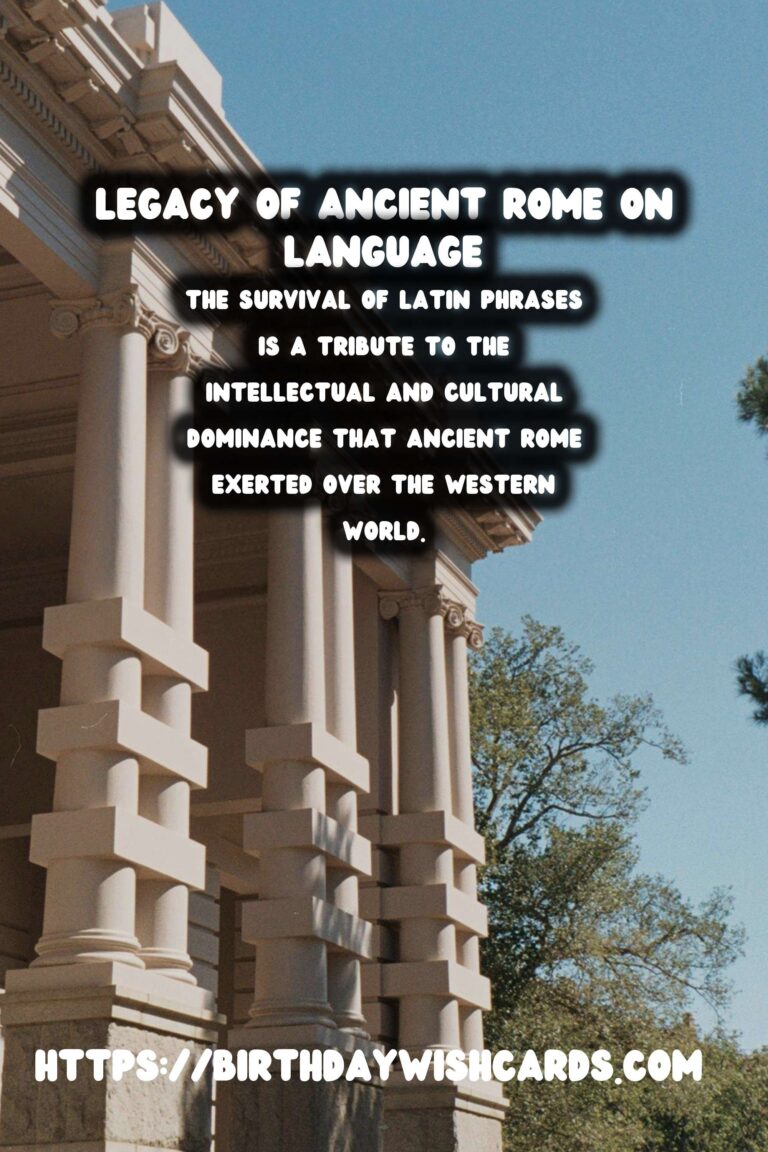
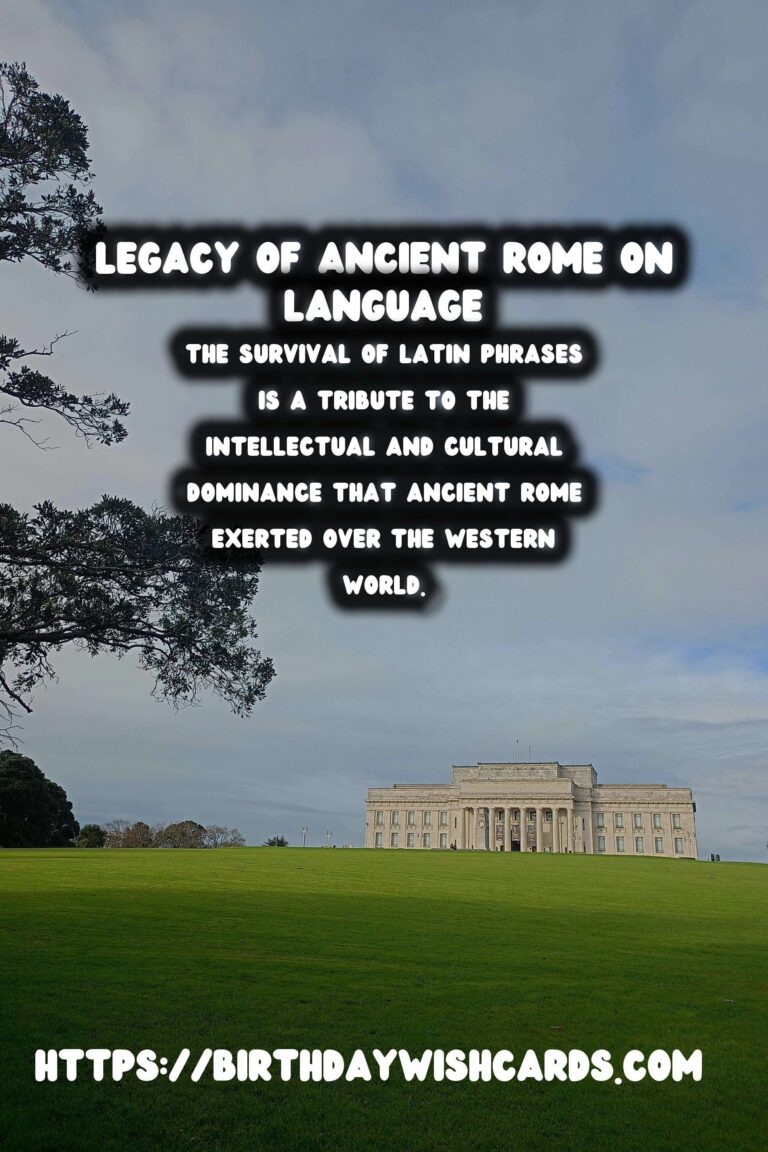
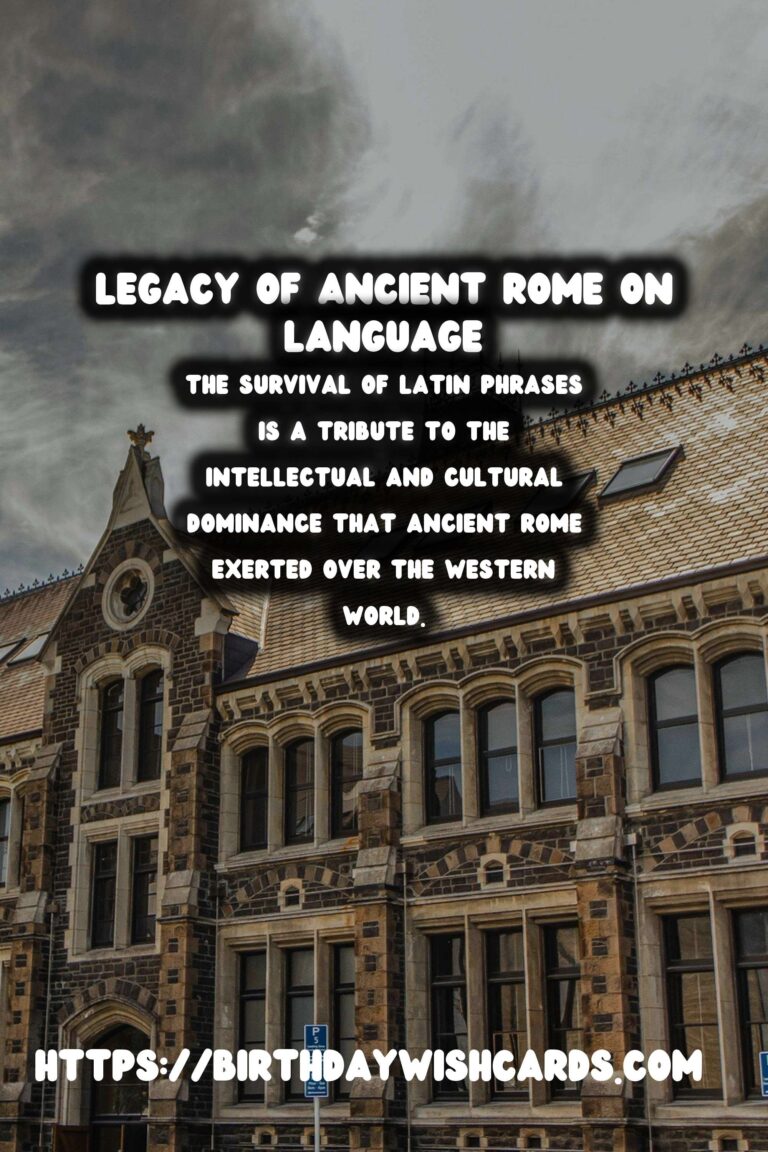
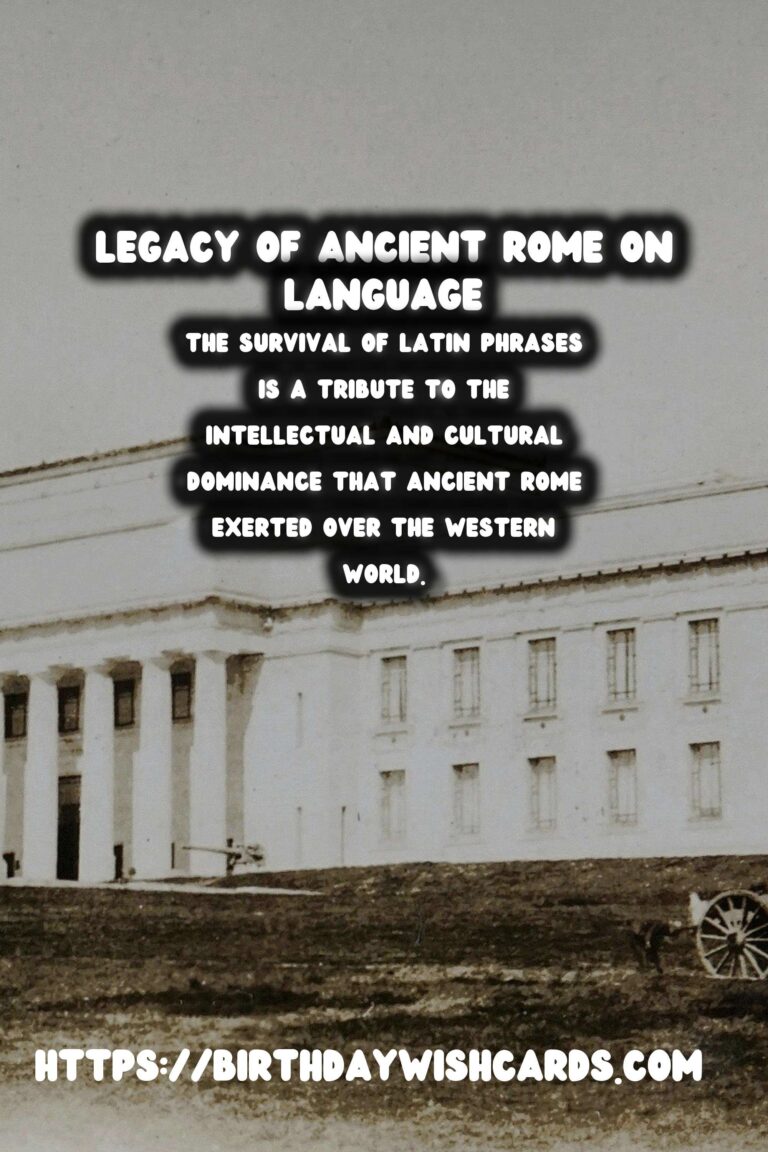
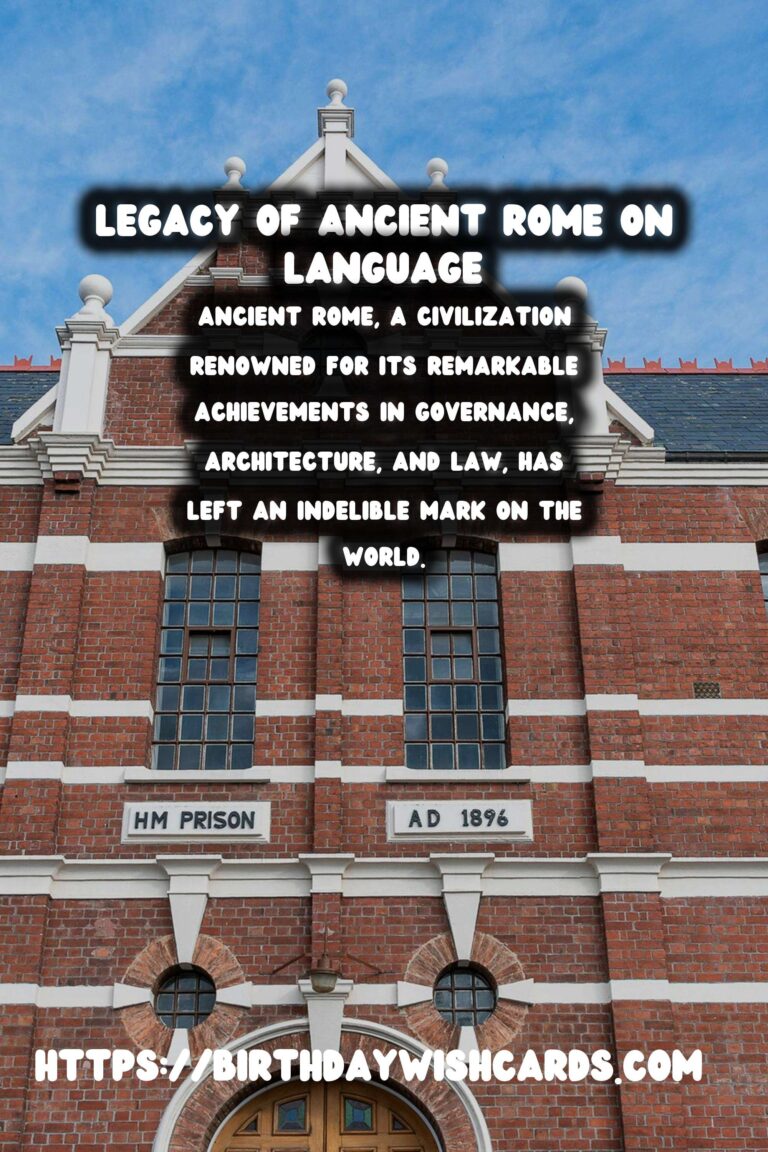


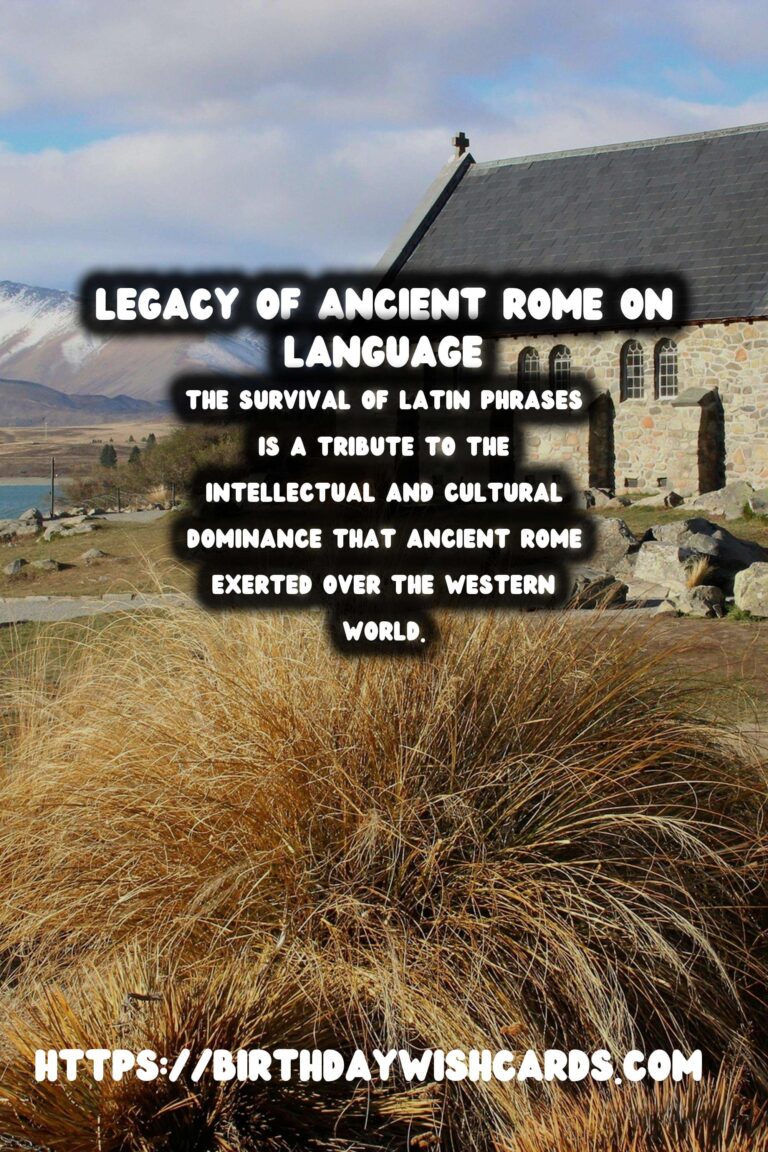
#AncientRome #LanguageLegacy




